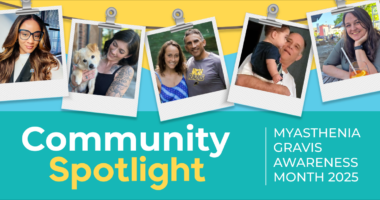Trusted Sources May Help Ease COVID-19-related Anxiety in MG Patients, Survey Reveals

People with myasthenia gravis (MG) felt high anxiety regarding COVID-19, experienced changes in their interactions with healthcare systems, and generally trust information coming from non-presidential federal government sources and local healthcare providers, according to a survey.
The results indicate that targeted messaging strategies by trusted sources may help keep patients informed and reduce their anxiety.
The study, “Knowledge and Perceptions of the COVID‐19 Pandemic Among Patients with Myasthenia Gravis,” was published in the journal Muscle & Nerve.
Treatment of MG involves suppressing the immune system, which makes patients more susceptible to infections that can worsen their MG-related symptoms.
To help healthcare workers better communicate with their patients during the ongoing pandemic, researchers from Duke University in North Carolina conducted an online survey to understand where people with MG got their information, how the pandemic had affected their medical care, and what protective measures they were taking against COVID-19, an infectious disease caused by the SARS-CoV-2 virus.
Of 1,848 people contacted from April 16 to May 28, 75 completed the survey. Nearly half were women. The median age in the group was 65.5 years, and respondents were overwhelmingly white (97%).
They reported that their five most-used sources for COVID-related information were the federal government (other than the president), local healthcare workers, state governments, and presidential news conferences and press releases. Federal sources included the U.S. Centers for Disease Control and Prevention, the Food and Drug Administration, Anthony Fauci, MD (director of the National Institute of Allergy and Infectious Diseases), and the U.S. Surgeon General.
The three most-trusted sources were non-presidential federal government sources, local healthcare workers, and state government sources. Their three least-trusted sources were social media, presidential news conferences and press releases, and word-of-mouth.
The Myasthenia Gravis Foundation of America, a major patient advocacy organization, was the seventh most-used source among respondents and their fourth most-trusted.
The three most-reported changes in healthcare use were postponed or cancelled appointments, more messaging through electronic health records, and a shift to telemedicine visits.
Personal protective measures taken by respondents changed considerably in response to the pandemic.
Although frequent hand washing had already been common practice , most participants reported adopting social distancing, avoiding groups, postponing nonessential appointments, wearing a mask, sheltering, and self-quarantining.
Approximately 92% of those surveyed said they knew the symptoms of COVID-19 and 85% reported knowing what to do should they experience any.
One thing that did not change was medication regimens. Although 21% of respondents contacted their neurologists to ask about the need to change medications, none reported needing to do so.
The survey revealed high levels of anxiety concerning COVID-19; responders overwhelmingly reported feeling “very concerned” or “somewhat concerned.”
Top specific concerns were worsening MG symptoms, dying from COVID-19, hospitalization, and infecting another person. The possible financial impact of COVID-19 was not a major concern and only one responder did not have medical insurance.
The survey included the General Anxiety Disorder-7 (GAD-7) questionnaire and respondent scores suggested the presence of anxiety, with 20% of survey takers scoring in the moderate-to-severe range. GAD-7 scores tended to correlate well with those of the Myasthenia Gravis Activities of Daily Living scale, which measures the impact of MG on daily activities.
No respondents had been treated or hospitalized for COVID-19 and three reported having been tested for the infection, with no test returning positive.
Overall, the survey found that people with MG felt concerned about COVID-19 and implemented appropriate personal protective measures. Healthcare workers, the government, and patient organizations appeared to play a key role as trusted sources of information, the investigators said. These might make patients better informed and reduce their anxiety through targeted communications strategies, they added.
“The observations in this study may be applicable to other vulnerable autoimmune and neurologic disease populations at higher risk for COVID-19 infections,” the team wrote, “and similar strategies could be implemented to improve communication during this pandemic and to better prepare for future pandemics.”






